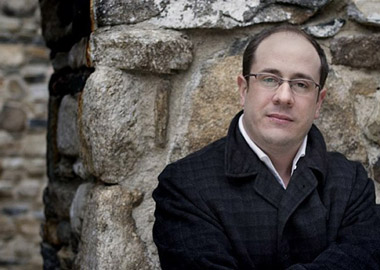Jeff Sharlet lacks for nothing in the intestinal fortitude department. Near the beginning of the Bush years, he met a young man who’d become involved in an organization called The Family. That turned into an invite for Sharlet to spend a month at one of The Family’s D.C. houses, a place where young men came to learn about the group’s extremist brand of Christian fundamentalism. Sharlet, hardly a kindred spirit, learned as much as he could about the secretive organization, then published it as the book The Family.
That group serves, even now, as a nexus of fundamentalism and political power. Charles Colson, Watergate conspirator, described The Family as the “veritable underground of Christ’s men all through the U.S. government.” Of course, Colson didn’t seem to mean “Christ’s men” in a broadly defined way, but rather those who hold to the circumscribed worldview of right wing evangelicals.
In a harrowing, beautifully written Harper‘s article describing his experiences living with The Family, Sharlet drew a picture of young men driven by idealism, fanaticism, and breathtaking exceptionalism. Their leaders in The Family invoked men like Hitler, Ho Chi Minh, Bin Laden, Lenin and Genghis Khan to explain the kind of radical devotion they needed if they were to “rule the world.” It might sound like garden variety hyperbole if not for the fact that prominent leaders, American and foreign, apparently meet together at The Family’s property to do business. Prominent members of Congress who are involved with the group have even undertaken trips, Sharlet told Democracy Now‘s Amy Goodman, to “pray to Jesus” with particularly odious dictators.
Sharlet, a Hampshire College graduate and now a Dartmouth professor, has long been fascinated by matters of American religion. With Peter Manseau, Sharlet appeared on the cover of the Advocate a decade-plus ago for a story about a book (and online journal) dubbed Killing the Buddha, a highly literary examination of religious thought that goes well beyond surface matters. His latest work, Sweet Heaven When I Die, is a deeply personal first-person set of essays examining some unsual byways of American faith and its extremes. Often, the narrative wanders to unusual places and events, and it’s not immediately clear where Sharlet is heading. That sense of wandering in the wilderness works well—Sharlet only seems to meander, evoking with just-right detail exquisitely American places and people. He’s always heading to revelatory examinations of American belief in its many guises. It’s a fascinating, often surprising voyage.
This week, Sharlet returns to the Valley for a discussion, book-signing and Q&A session.
Aug. 31, 7:30 p.m., free, Robert Crown Center, Hampshire College, 893 West St., Amherst, (413) 549-4600.



